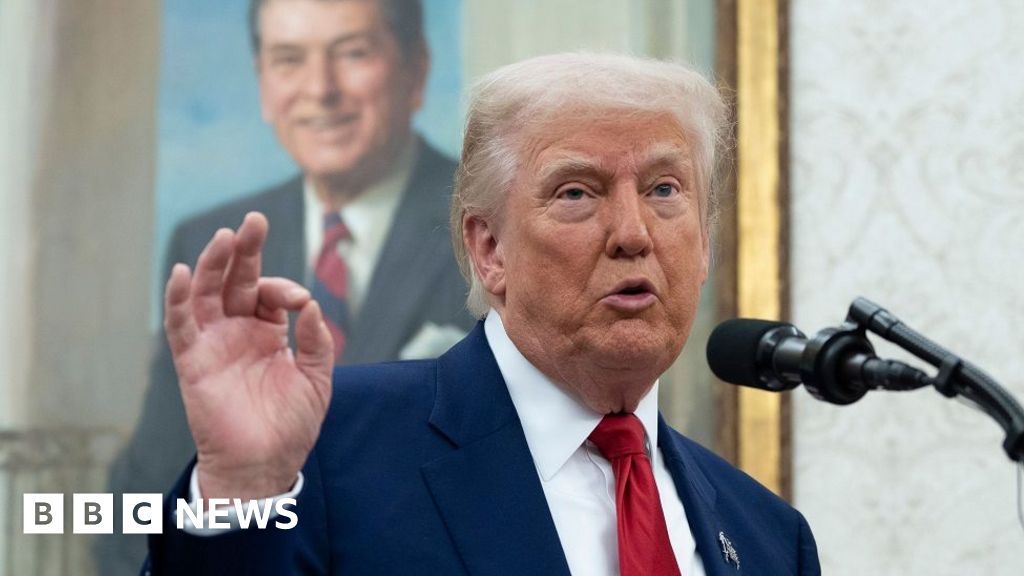Court’s Ruling on Trump’s Tariffs: A Landmark Decision
Overview of the Ruling
A landmark ruling from a US federal court has recently struck down a significant aspect of President Donald Trump’s economic policy, specifically his sweeping tariffs. The Court of International Trade declared that the emergency law used by the Trump administration did not grant the president unilateral authority to impose tariffs on a wide range of countries. This decision underscores a critical principle in US governance: that the power to regulate commerce with foreign nations rests solely with Congress, as enshrined in the Constitution.
The Case Behind the Decision
The ruling resulted from two combined legal challenges. On one side, the nonpartisan Liberty Justice Center represented small businesses that import goods subject to these tariffs, while a coalition of state governments also contested the legality of the import taxes. These cases posed a significant challenge to what the administration termed its "Liberation Day" tariffs, raising questions about the extent of executive power in trade matters.
A three-judge panel determined that the International Emergency Economic Powers Act (IEEPA) of 1977, which Trump invoked to justify the tariffs, does not allow for such sweeping tax increases. This ruling also included blocking tariffs imposed specifically on Canada, Mexico, and China, which were justified by claims regarding drug flow and illegal immigration.
Reactions to the Ruling
The reaction to the court’s ruling has been polarized. While the White House criticized the decision, asserting that it undermines the ability of elected officials to respond effectively to national emergencies, the case garnered support from various quarters, including Letitia James, the New York Attorney General. James emphasized that the ruling reinforces the principle that no president can unilaterally raise taxes without congressional approval.
Global markets have reacted favorably to the decision, with stock prices rising significantly. Investors appeared to see the ruling as a stabilizing force, alleviating concerns of impending trade wars and tariffs that could have broader economic repercussions.
Next Steps for the Trump Administration
As the White House moves to appeal the ruling, there is an explicit timeline for action. They have ten days to navigate the bureaucratic process of halting the tariffs, which, as of now, are largely suspended. If the appeals process does not favor the Trump administration, the US Customs and Border Protection Agency will issue new guidelines reflecting the court’s ruling.
The possibility of a more favorable judgment from a higher court remains open, but if the ruling stands, businesses impacted by the tariffs could be entitled to refunds, including interest on amounts previously paid.
Historical Context
The backdrop to this legal battle is rooted in Trump’s broader trade strategy. On April 2, Trump announced a sweeping global tariff regime that placed a baseline 10% tariff on goods from most countries, alongside higher reciprocal tariffs targeted at several trading partners, including the European Union, Canada, Mexico, and China. The administration contended that these tariffs were crucial for protecting American manufacturing and job retention, yet they evoked considerable backlash and economic turmoil.
The tension escalated during an ongoing trade war with China, characterized by successive rounds of tariff hikes that culminated in exorbitant taxes on exports from both nations. Recently, some tariffs were lowered as both parties entered negotiations, but the legal battles over the administration’s tactics continue.
Implications for Future Trade Policies
This ruling sends a message about the limits of executive power in trade matters and how the Constitution delineates responsibilities between the branches of government. Analysts suggest that the ramifications of this decision could hinder the Trump administration’s ambitions to swiftly negotiate new trade agreements, especially amid a backdrop of uncertainty and mixed market reactions.
The ongoing saga of tariffs and trade policies will undoubtedly remain a focal point in American politics, illustrating the complex intersection of law, economics, and governance. The outcome of this appeal, and subsequent legal interpretations, will potentially reshape the landscape of US trade policy for years to come.


